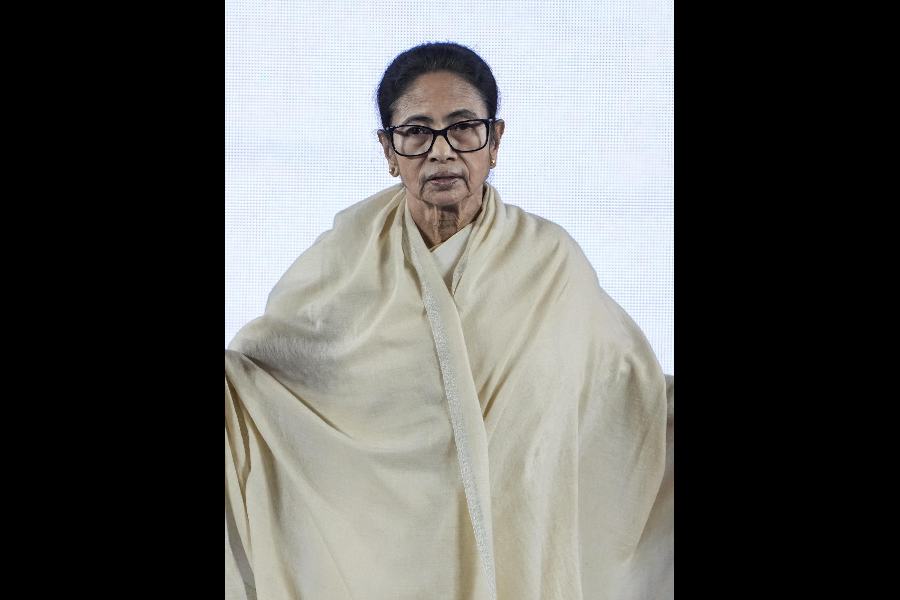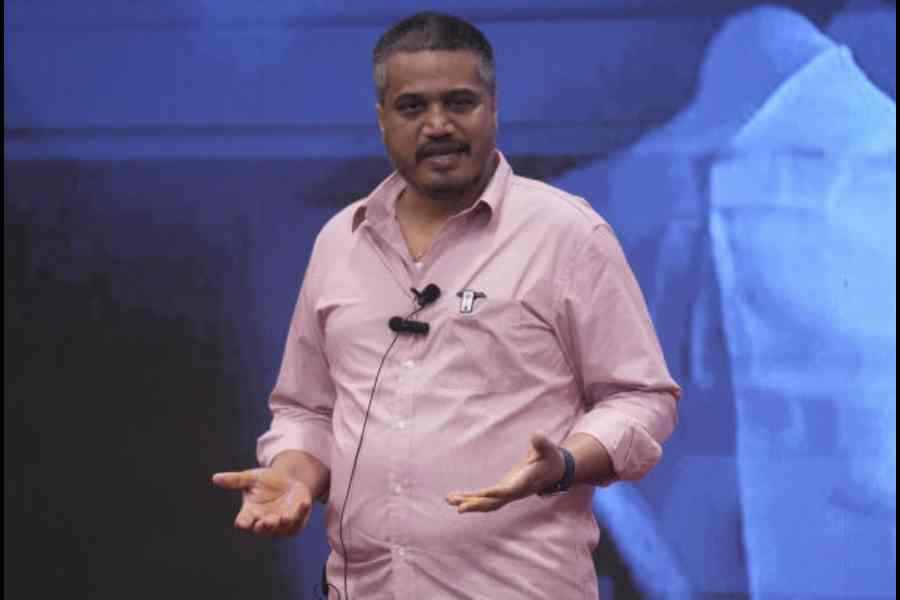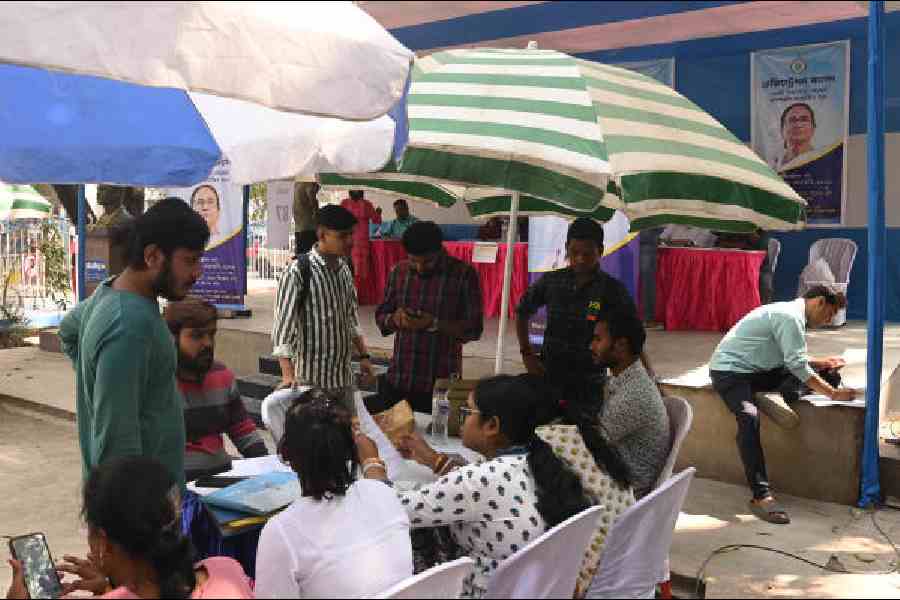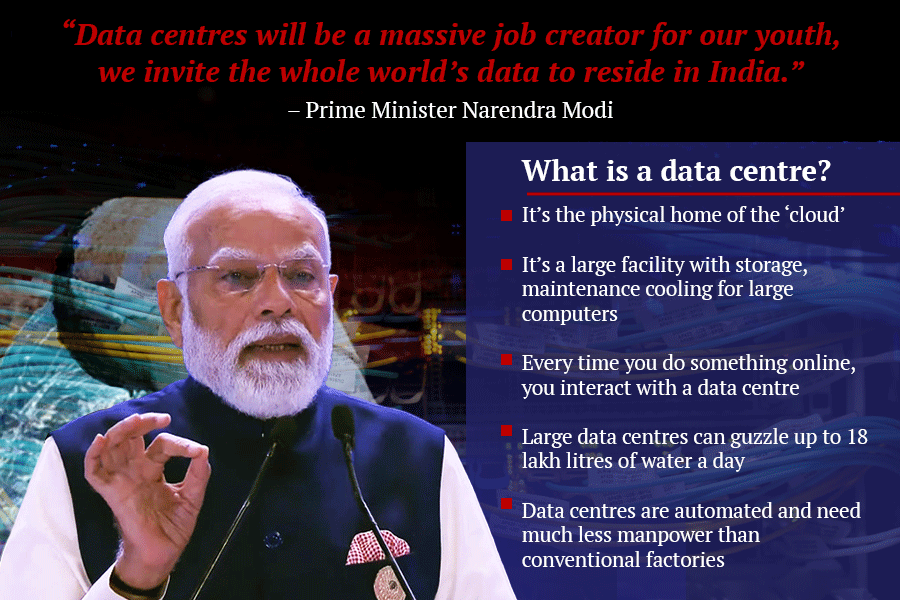An idealistic but unsuccessful journalist (Adarsh, played by Viineet Kumar Singh), who neglects home and hearth, chances upon his wife (Naina, played by Rajshri Deshpande) enlisting the services of a gigolo (Taaruk Raina plays Sunny). That not only turns his world upside down, but also sets him off on a tricky path of twisted revenge — signing up to become a gigolo himself!
That is the rather unconventional premise of Rangeen, now streaming on Amazon Prime Video. Recently, t2 chatted with Viineet, Rajshri and co-writer and co-director Amardeep Galsin about their show.
What have your primary takeaways from the feedback to
Rangeen been?
Amardeep Galsin: The reception to Rangeen has been surprisingly intimate. A lot of people wrote in saying they saw themselves in the characters, and the lovely part is that different viewers connected with different people. Of course, feedback on a subject like this is always intense — stories that live in emotionally grey zones are bound to make some people uncomfortable. If you turn it up, some say it is too much. If you turn it down, others feel let down. But as creators, we welcome all of it. Feedback helps us grow. It sharpens our instincts.
What stings a little is when women characters who are messy, imperfect or assertive get quickly labelled as problematic. There is still a gap in how audiences receive flawed men versus flawed women. One is seen as complex, the other as controversial. That is something we wanted to quietly challenge.
Rajshri Deshpande: For me, the response has been deeply personal. So many people wrote in saying they saw themselves in Naina, or knew someone like her. People who are tired of the usual crime dramas have embraced Rangeen as a refreshing change. And then there are those who have found it uncomfortable because it challenges fixed ideas of right and wrong. But honestly, I am glad. Whether the response is good or conflicted, conversations are happening.
One message that really stayed with me was from a woman who said: ‘I didn’t agree with her (Naina’s) choice, but I understood it’. For me, that is what art should do… open up space for empathy, not judgment.
Viineet Kumar Singh: Honestly, I wasn’t expecting the kind of feedback we have got, at least not to this extent. I always knew that this is a show that will invite a host of diverse views, everyone will have a perspective.
The good thing is that Rangeen has triggered conversations and debates. That is a healthy sign. This is a subject that has not been explored much, especially in this space. We have rarely come across anything that talks about female orgasm in the way Rangeen does.
All the characters — primarily Adarsh, Naina and Sunny — are on a journey. They are all at a point where they are learning about life. Adarsh is an idealistic journalist who is well-versed about almost everything that is happening in the world, lekin jab ek masculine chashma leke aap duniya dekhto ho, toh aadhi aabaadi aap se chhut jaati hain. The whole female perspective is ignored. That is what happens with Adarsh. Many people have found that relatable.
It is only when Adarsh — in order to take revenge against Naina — attempts to become a gigolo, he realises all the mistakes that he has made in life. That is when his character grows. I keep experimenting with my roles, and Rangeen, I feel, has really worked
What was the starting point of this idea and were there any specific dos and don’ts in order to deal with a subject as tricky as this?
Amardeep: We stumbled upon the world of paid intimacy through a news article — it opened the door to a whole underbelly of middle India that we had no idea existed. It was full of scamsters, colourful characters, lonely people seeking connection and all the contradictions that make for great storytelling.
But from the start, we were clear: this wasn’t going to be a sex comedy. It was going to be a character study. We weren’t interested in what people do as much as why they do it — what emotional voids, fears or longings drive them. That clarity helped us define some ground rules early on. We wouldn’t glamourise sex. We would show it as it often is — awkward, messy, emotionally complex. We wouldn’t objectify anyone... not men, not women. We wouldn’t over-explain or justify people’s choices, or spoon-feed what is right and wrong. And we definitely didn’t want to make it overly cerebral or preachy. At its core, Rangeen was always about stepping into a morally messy world — and staying long enough to understand it, not judge it.
In what ways does Rangeen challenge the usual perception of masculinity, especially in our society?
Amardeep: Rangeen looks at masculinity not as something fixed, but as something fragile — shaped by expectation, pressure and performance. Both Adarsh and Sunny are in crisis, in very different ways. Their ideas of what it means to ‘be a man’ are shaken, and when that idea collapses, they don’t know who they are. They are both forced to rebuild their sense of self.
We were interested in how society’s ideals of masculinity can be just as constraining for men, as the ideals of femininity often are for women. That pressure can be quiet, but it runs deep — and for many men, it is quietly devastating.
Rajshri: Rangeen flips the usual power dynamic. The men in the show are the ones being chosen, desired and judged, and that alone shifts how we view masculinity. Adarsh thinks he is the one in control, but his masculinity is so fragile, it begins to crack the moment Naina stops playing by his script. What I love is that the show doesn’t mock men, it just holds up a mirror and asks: what happens when your sense of self is built entirely on being needed?
Viineet: There are various ways to look at Rangeen. It is quite layered. There is no doubt about the fact that we live in a male-dominated society. In such a scenario, if an unusual step is taken by a woman to assert her freedom, sexual or otherwise, it needs to be examined why she is doing it. Naina’s decision to opt for paid sex is not one taken overnight — it is the result of several months, and even years, of neglect by her husband. She looks after him and the home, but he doesn’t spare even five minutes to talk to her. He feels that just because he has given her material comforts, his job is done. But that, of course, is never enough, and should never be enough. If one looks at Rangeen from that viewpoint, it tells us a lot of things.
Viineet, you have consistently played intriguing, out-of-the-box characters. Where will you place Adarsh in that list?
Viineet: Adarsh is definitely somewhere at the top. It is a very unusual character. Adarsh is caught in an extraordinary situation aur woh ek ajeeb-o-gareeb safar pe nikal chuka hain. He has opted to follow a certain path in his life on the basis of a knee-jerk reaction, which is now creating even bigger problems for him. With most men caught in situations like this, introspection is the last thing on their minds — their ego is hurt and that almost blinds them. Logic then goes out of the window. Adarsh is complex, stubborn, he doesn’t listen to anyone. He wants to do everything according to what he thinks is right. That made the character both interesting and challenging.
As an actor, working on a subject as sensitive as this taught me a lot. It also helped me gain a certain perspective in my personal life. As an actor, it is my responsibility to play a character as it has been written — with his good and bad traits. My personal take shouldn’t cloud how I play a character.
Rajshri, how much of a tricky yet liberating experience was it for you to play a character as flawed but relatable as Naina?
Rajshri: What struck me about Naina was that she isn’t trying to be liked… and that is rare. She makes a choice that many would judge, but the show doesn’t ask you to approve of her. It just asks you to sit with her. That is what drew me in. As an actor, it was both tricky and liberating… tricky because she doesn’t explain herself, and liberating because she doesn’t have to.










